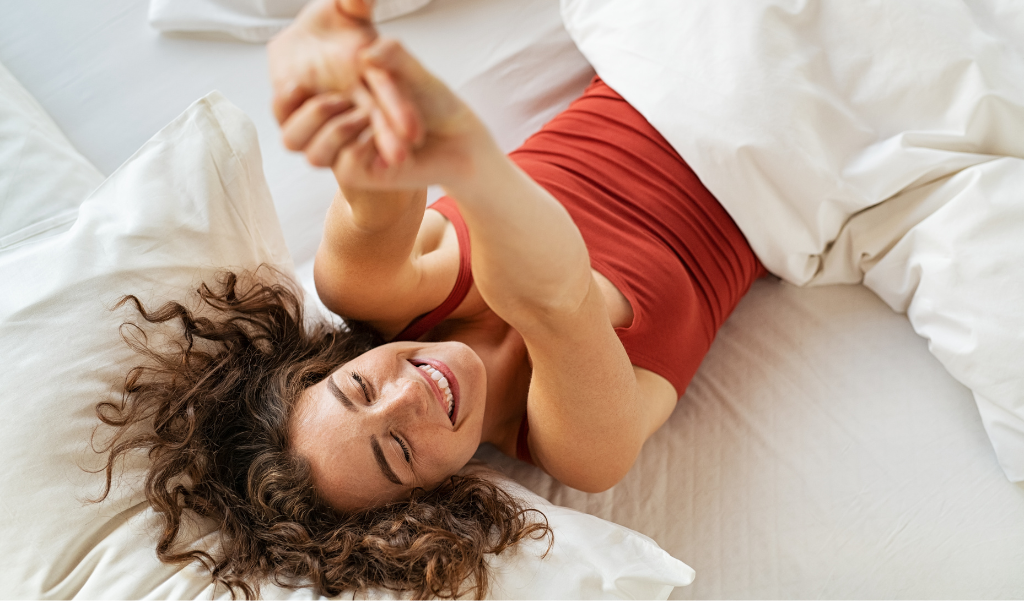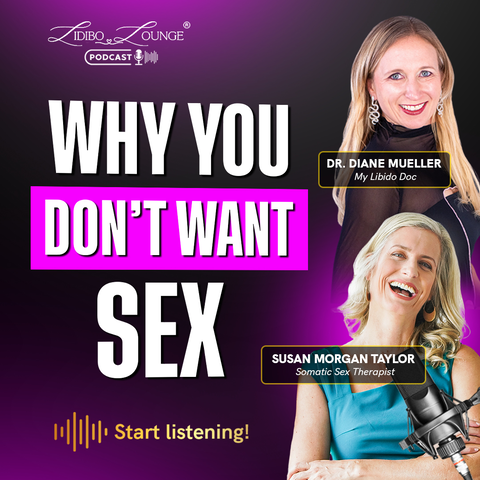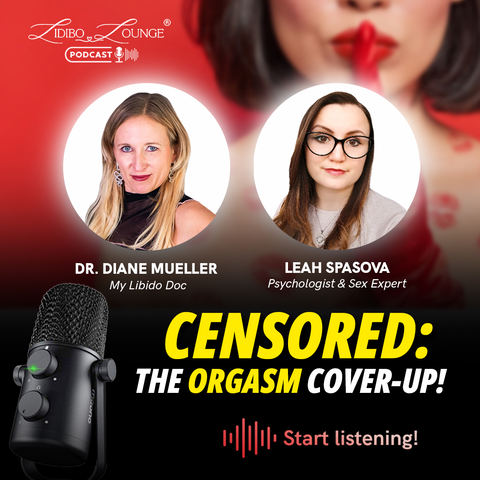Are you wondering about low libido in young women? You’re not alone—approximately one-third of women in the US report experiencing low libido at some point. This issue, often accompanied by frustration and concerns about relationships, can leave you feeling isolated. However, the first step to regaining control is understanding the causes, from hormonal changes to lifestyle factors. Jump into the complexities of low libido and discover how to navigate this sensitive topic with confidence.
Key Takeaways
- Common Causes: Low libido in young women is often linked to hormonal imbalances, stress, lifestyle factors, and relationship issues. Understanding these causes is crucial for addressing the problem effectively.
- Symptoms Awareness: Key indicators such as decreased sexual desire, lack of sexual thoughts, reduced pleasure during sex, and potential signs of mental health issues should be watched for early diagnosis.
- Consulting a healthcare professional can help identify root causes and offer appropriate treatments, including medication adjustments or hormone therapy.
- Treatment Approaches: Addressing low libido may involve medical treatments, therapy, and lifestyle changes. Integrating physical activity, a balanced diet, and adequate sleep can naturally enhance sexual desire.
- Healthy habits and open partner communication can improve libido. Reducing alcohol intake, not smoking, and maintaining a balanced lifestyle are key strategies.
Table of Contents
Common Causes of Low Libido in Young Women
Understanding low libido’s root causes helps you address this sensitive issue effectively. You may find that this is a more common concern than it seems. Here, discover some of the leading causes impacting young women’s sexual desire.
Hormonal Imbalances
Hormonal fluctuations significantly affect your libido. Specific birth control methods, like Depo-Provera and some pills, can lower sexual desire by altering hormones. During pregnancy and breastfeeding, hormonal shifts, coupled with fatigue and body image changes, often affect libido. Both estrogen and testosterone levels play a role, with low levels of either impacting desire. Menopause, while more relevant in later years, also involves hormonal transitions that can influence libido.
Stress and Medical Conditions
Stress is a pervasive barrier to maintaining a healthy libido. It clouds your mind, making it difficult to focus on intimate moments. Anxiety and depression further compound this issue, creating a cycle of low desire and emotional distress.
Also, conditions like diabetes, thyroid problems, heart disease, chronic fatigue or pain conditions, and other diseases naturally lead to low libido in women.
Lifestyle Factors
Your lifestyle choices often mirror your libido levels. Poor diet, lack of exercise, and sleep deprivation negatively impact your energy and mood, affecting sexual desire. Substance abuse, such as alcohol or drugs, also plays a role in diminishing libido by altering your physical and emotional state.
Relationship Issues
Emotional and relational issues influence your sexual desire. Communication problems, unresolved conflicts, or lack of emotional intimacy with your partner can lead to decreased libido. Building a trusting and open relationship creates a supportive environment for libido to flourish.
Other Factors
- Medications: Antidepressants and birth control pills can have the common side-effect of lowering libido.
- Stress, fatigue, and poor sleep can all reduce libido in young women. Being stressed out causes your cortisol, the stress hormone, to rise. Your body will end up making less of the other hormones, including the Sex hormone testosterone, which drives libido.
- Mental health: Anxiety, depression, and body image issues can lead to low libido.
- Feelings of insecurity: If you feel insecure about your body or your sexual abilities, it can challenge your ability to feel sexy, confident, and aroused.
- Working TOO much: Being ‘on’ for work 24/ 7 is taking its toll. People are stressed and have less sex.
- Or are you caught up in a kind of ‘masculine’ energy? This can make intimacy in the bedroom more difficult. Being turned on requires turning off the over-worrying, over-analyzing thoughts in your head so you can relax and have an orgasm. Our masculine and feminine energies need to be in balance. Our feminine energy can suffer if we lean too far towards the masculine.

Symptoms and Diagnosis
Recognizing low libido in your 20s involves understanding various physical and psychological indicators. It’s important to identify these signs early to seek appropriate help.
Signs to Watch For
- Decreased Sexual Desire: Noticeably reduced interest in sexual activity or masturbation can be an early warning. This lack of desire isn’t just an occasional disinterest but a persistent absence.
- Few or No Sexual Thoughts or Fantasies: A diminishing presence of sexual thoughts or fantasies, often linked to hormone imbalances or mental health conditions like depression, might signal deeper issues.
- Lack of Pleasure During Sex: Experiencing reduced or no pleasure during sex affects overall well-being, pointing to potential underlying health or emotional concerns.
- Vaginal Dryness: Occasionally associated with hormonal changes, a lack of natural lubrication, or other physical conditions, this indicator can significantly impact sexual experiences.
- Depression and Anxiety: If persistent feelings of sadness or anxiety intrude on daily life, these emotional states might also affect your sex life, amplifying a low libido condition.
- Pain During Sex: Conditions such as vaginismus or dyspareunia, which make sex painful or unfulfilling, often require medical attention to address the discomfort and enhance sexual health.
Consulting a Libido Specialist
When these symptoms persist, consulting a professional is advisable. A thorough evaluation can identify the root causes, which may include hormonal imbalances, mental health issues, or other physical conditions. Addressing these factors promptly with medical guidance not only improves sexual health but also enhances overall quality of life.
Treatment Options for Low Libido
Addressing low libido involves exploring various approaches to identify practical solutions. Recognizing each treatment’s potential can guide you toward regaining sexual desire.
- Get help for any underlying medical condition that may be holding your sexual desire back. If a medication causes your low libido, you may be able to change to a different medication that does not lower libido as a side effect.
- Make changes to your lifestyle to increase your sexual desire. Focus on less stress, less fatigue, and better sleep. Do this by exercising regularly, eating a healthy diet, and getting to bed in time to get enough sleep.
- Support your adrenal glands. Take good care of your body, particularly your adrenal glands, in the face of stress. Get enough sleep, get daylight early in the morning by going for a walk first thing, eat protein for breakfast, get enough vitamin C, reduce sugar and processed foods, focus on a whole-food diet, reduce alcohol, cigarettes, and other toxins, meditate to reduce stress hormones, and practice yoga and deep breathing. See us at The Libido Doctor for more help on managing adrenal health.
- Therapy can help with anxiety, depression, or body image issues. With your therapist, you can identify and address the underlying reasons for low libido.
- Add pleasure to your day in simple, non-sexual ways. Have fresh flowers. Play music you love during your morning walk. Use beautiful, organic, luxurious body lotions or perfumes. Have regular massages. This increases and grounds your feminine energy in your day.
- Discover what you want so you can ask for it. Take time to explore your sexuality and why your libido might be low. What turns you on? Once you know yourself better, ask for it. No partner? No problem. Take matters into your own hands if you know what we mean.
Preventative Measures
Tackling low libido in young women involves a combination of medical intervention and lifestyle adjustments. Consider several measures to manage and improve sexual desire effectively.
Healthy Habits
The basics to improve your libido, which we all should be doing, include:
- Regular exercise
- Healthy diet
- Adequate sleep
- Stress management
- Less or no, alcohol and drugs
- Don’t beat yourself up about it. Low libido is a common problem, and it’s nothing to be ashamed of.
- Try new things in the bedroom – different positions, new toys, you get the idea.
- Be patient with yourself. Sex is about fun so try to relax and enjoy!
How to Talk to Your Partner (in 5 small steps)
You also might need to talk to your partner about low libido. Here are some tips on how to get the conversation going:
- Choose a time when you are both relaxed and have time to talk.
- Start by talking about your feelings and concerns.
- Be honest and open with your partner.
- Listen to your partner’s feelings and concerns.
- Work together to find solutions.
Conclusion
We know it can be frustrating. But remember, you’re not alone. There are lots of women out there who are going through the same thing. Figuring out what sets you off and chatting with a doctor can help boost your sexual health. Tweaking some habits and having honest talks with your partner can help you get closer and feel more connected.
If you are still struggling, don’t hesitate to contact My Libido Doc; we can help. There are many things we can work on to get your mojo back! Or check out our next masterclass!











